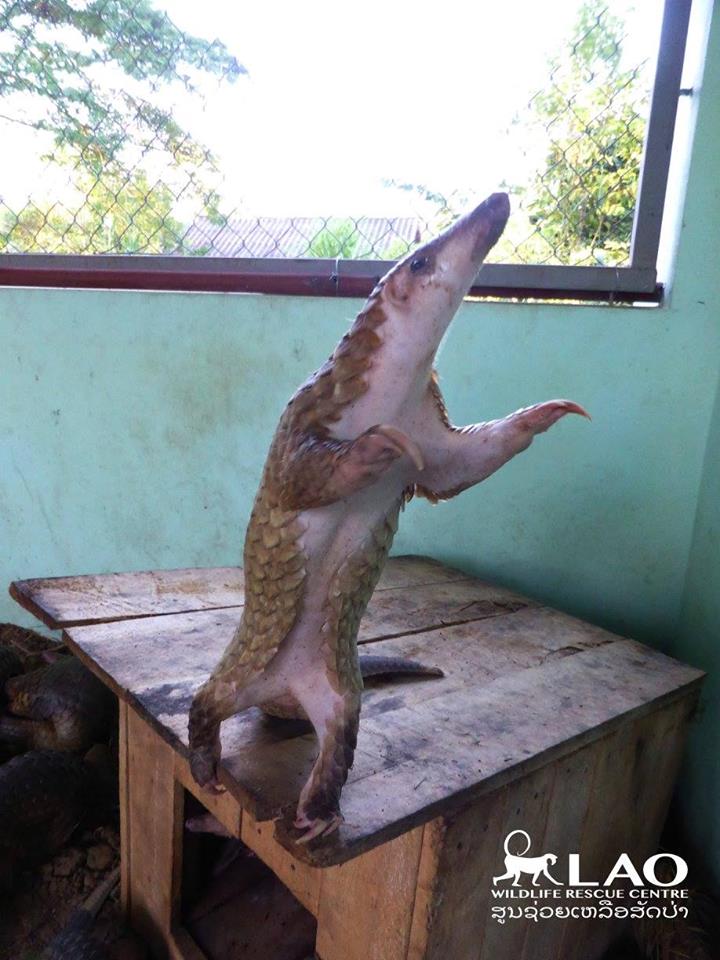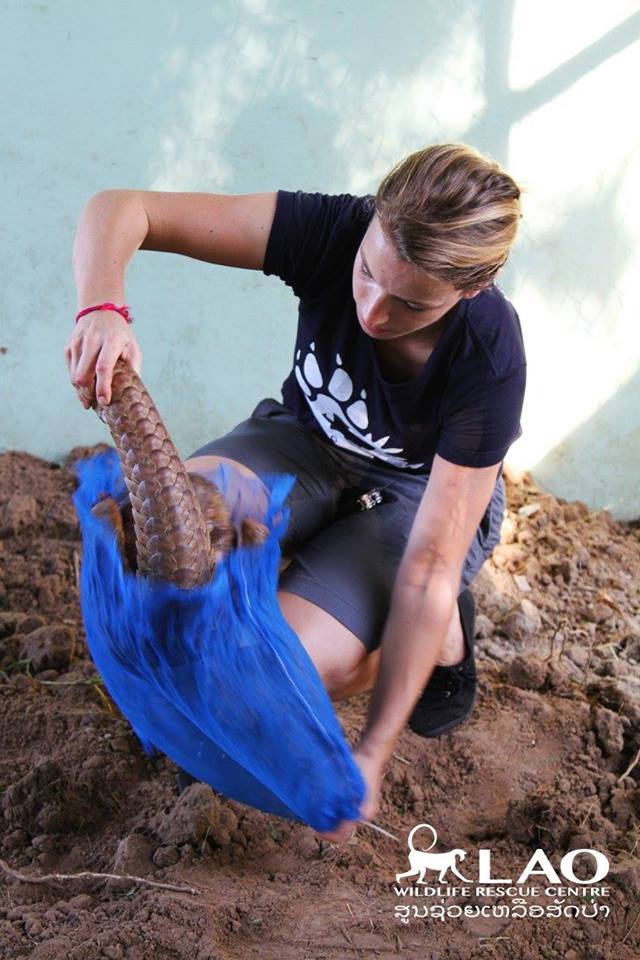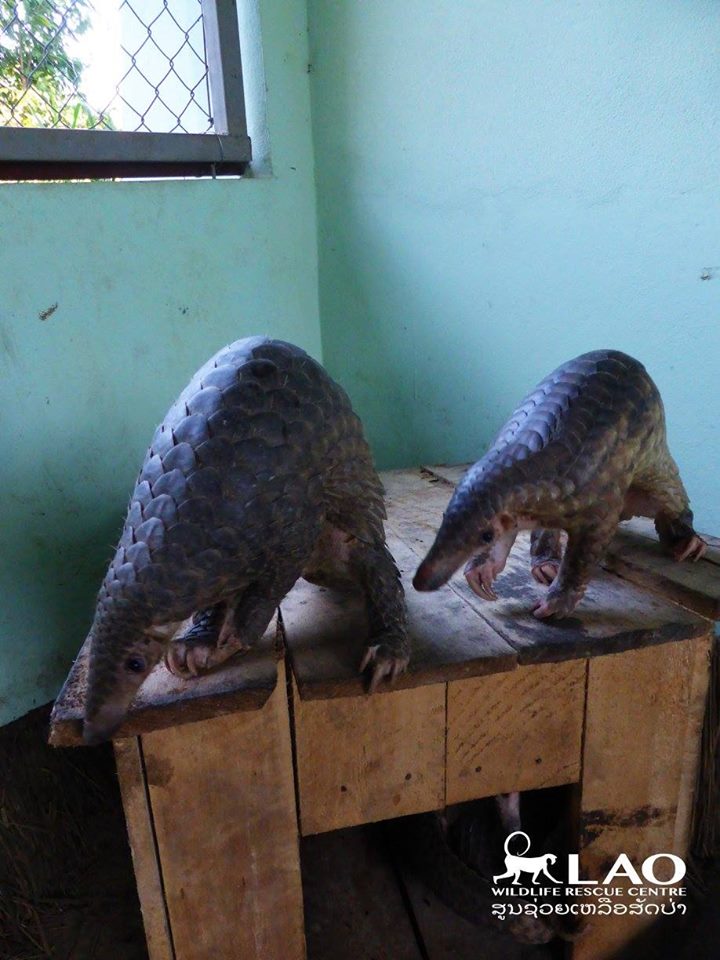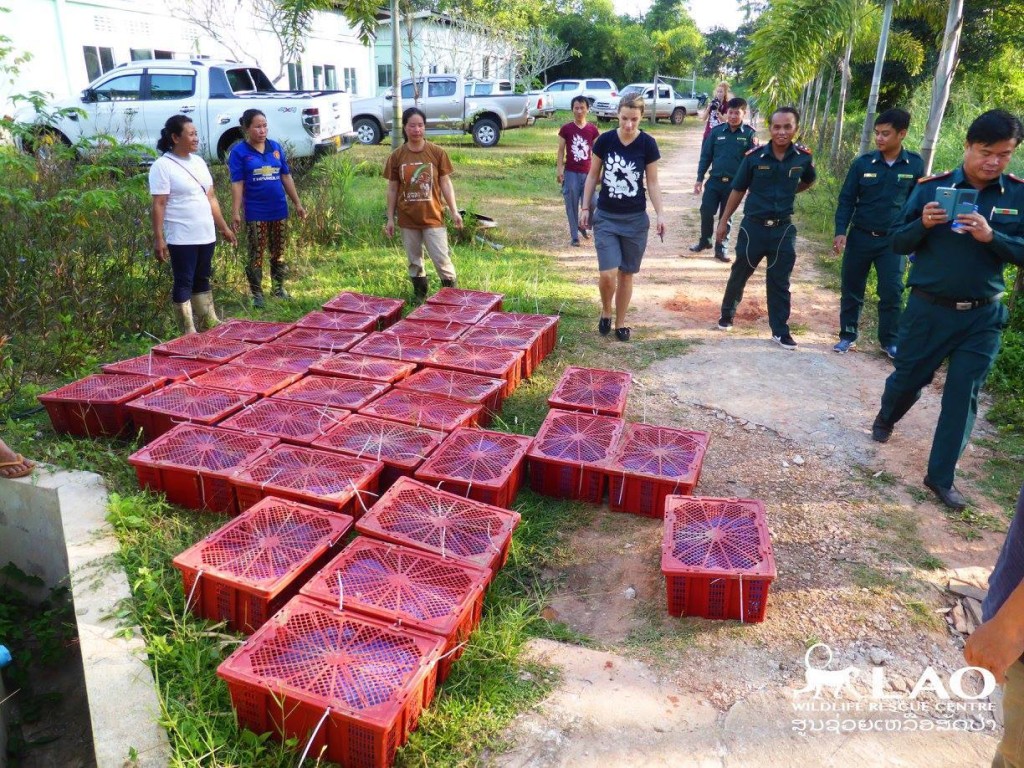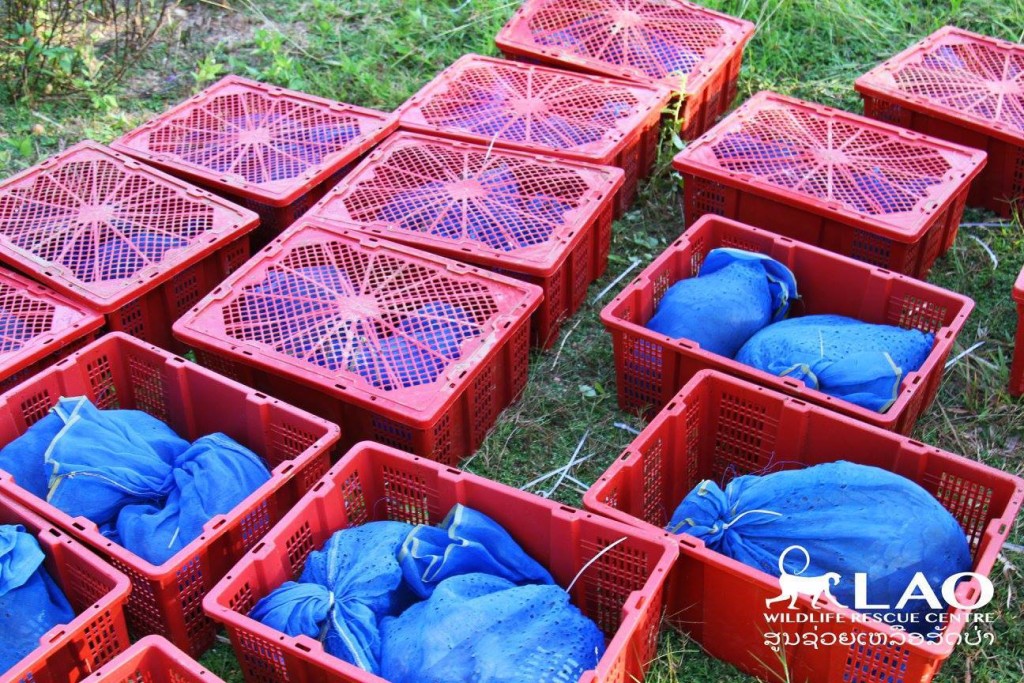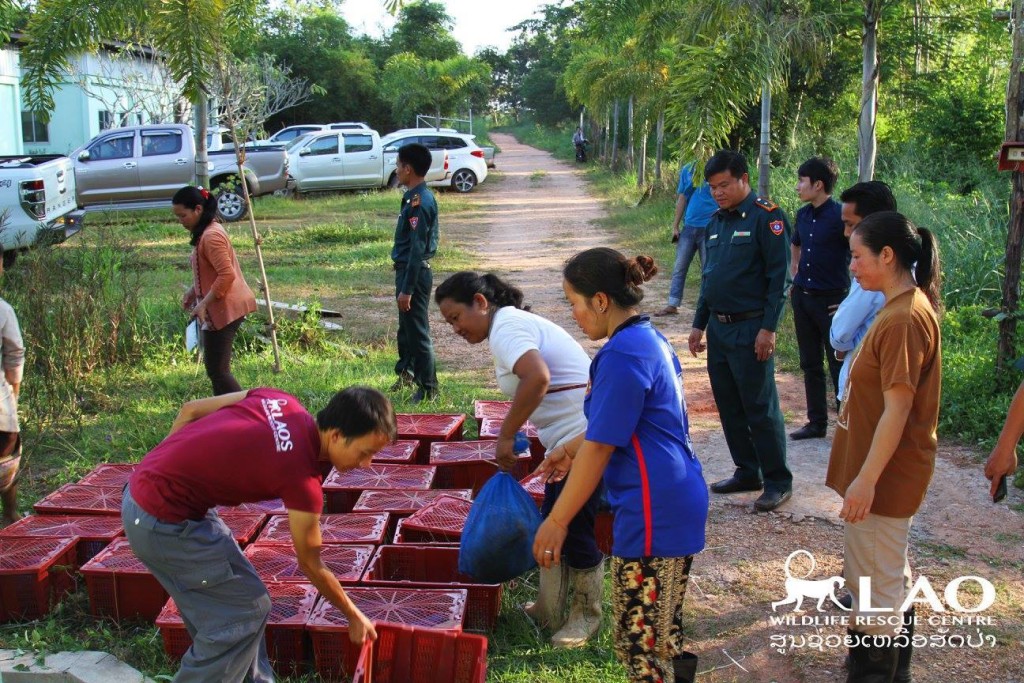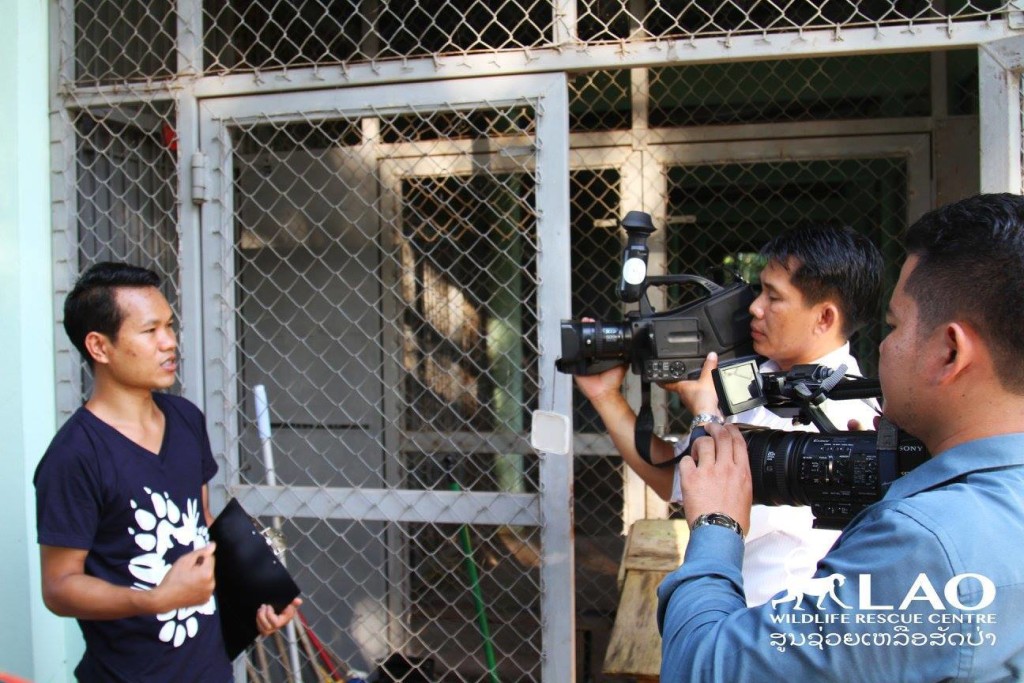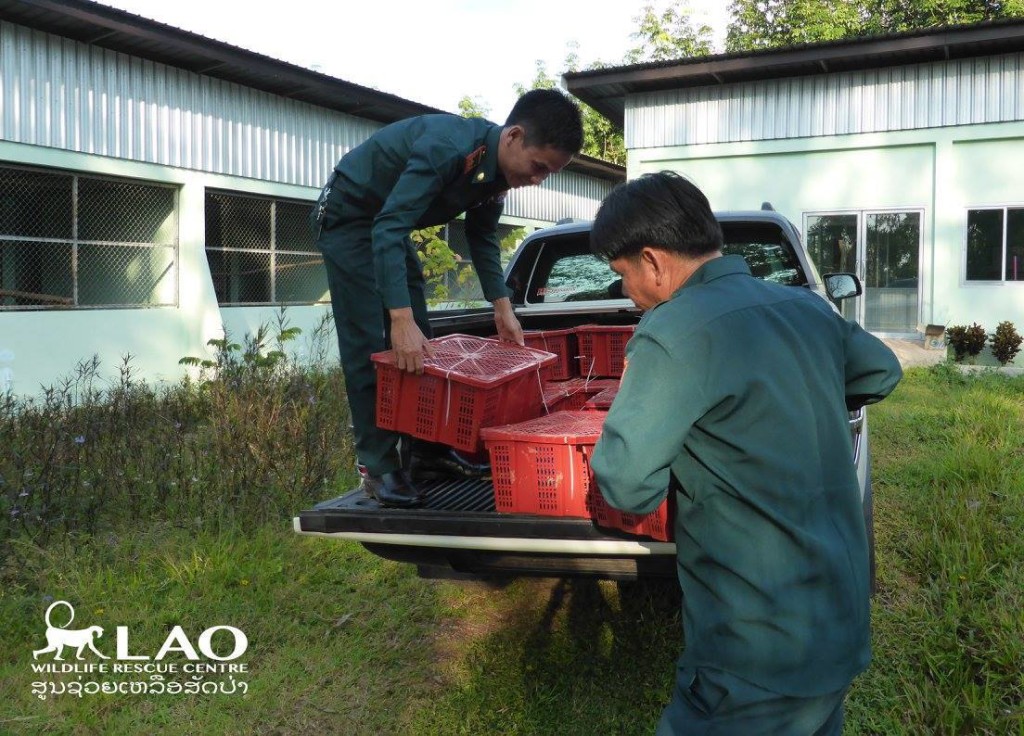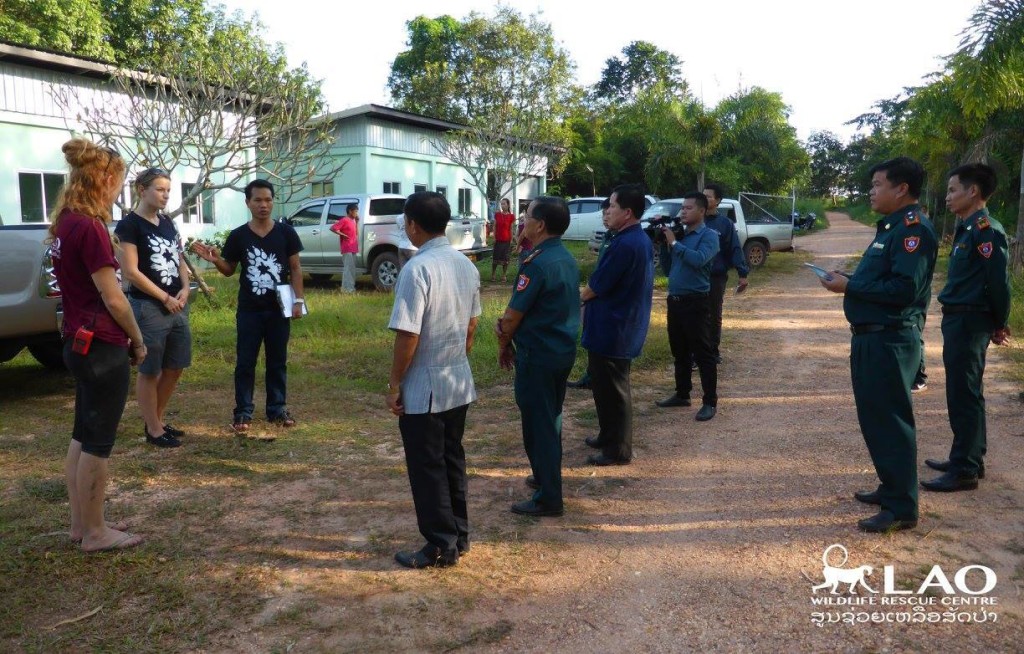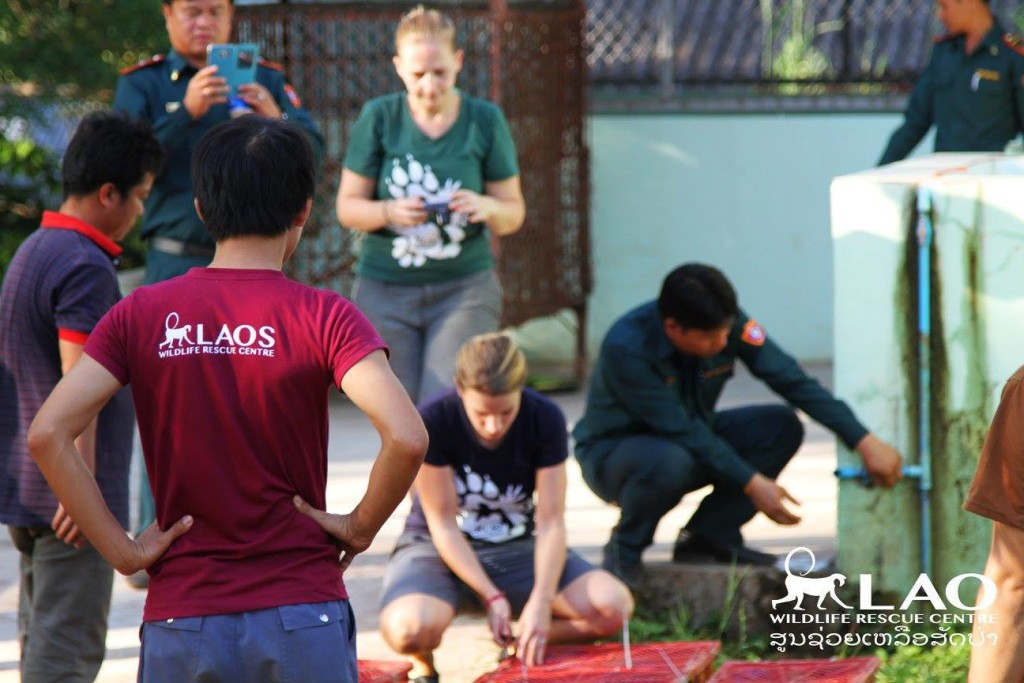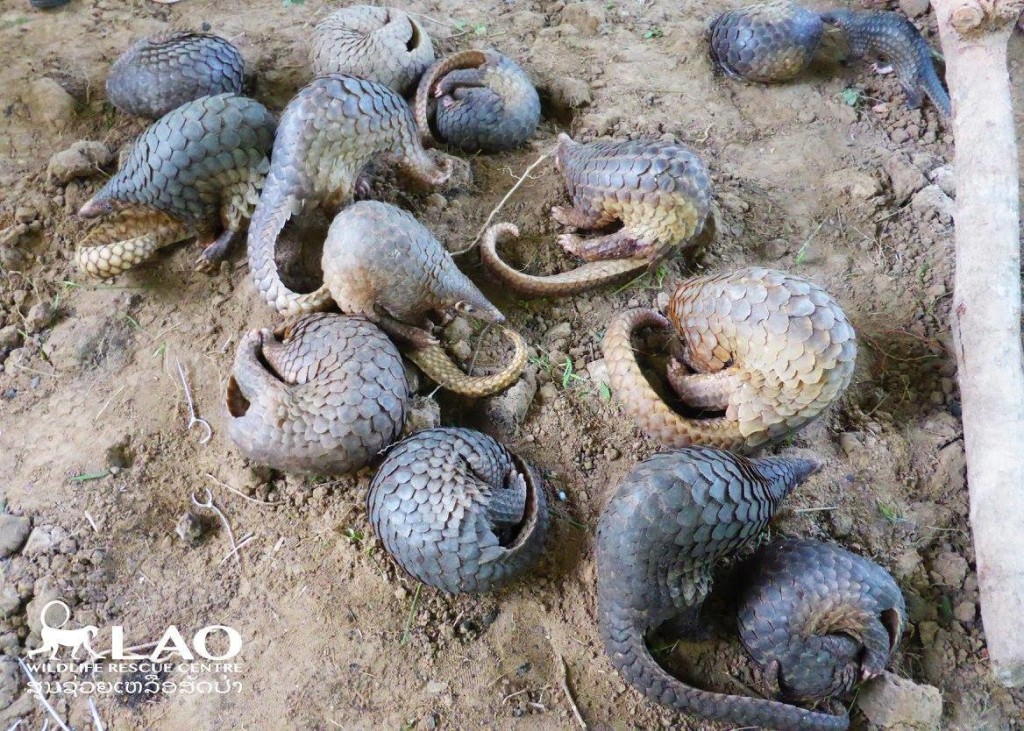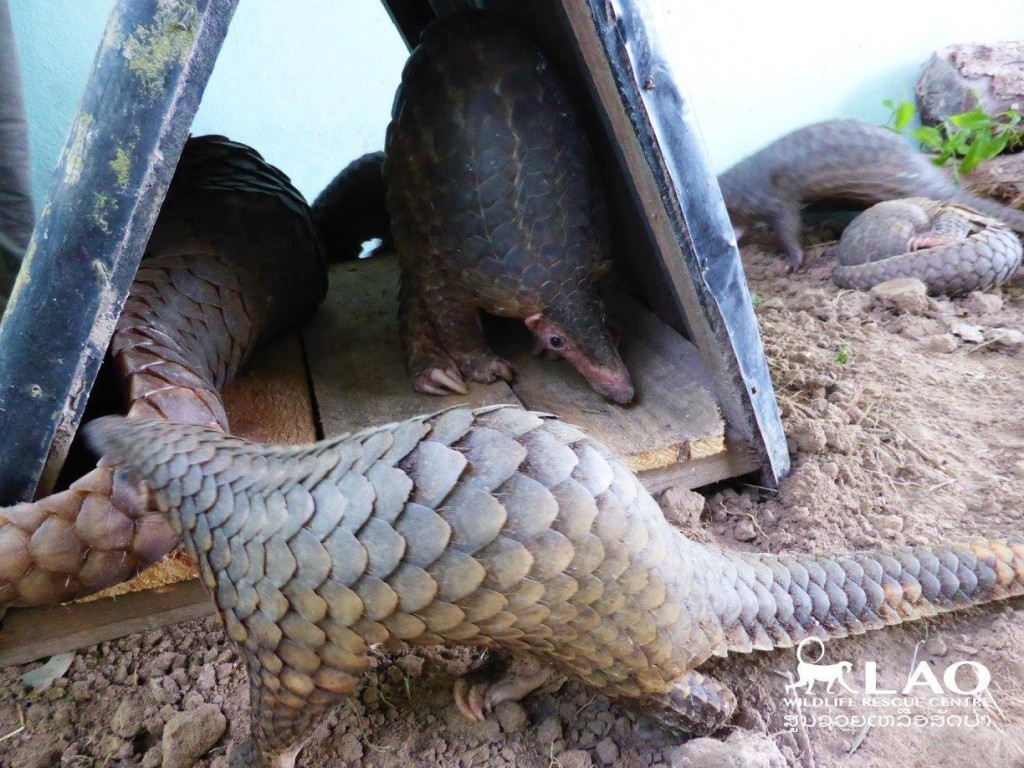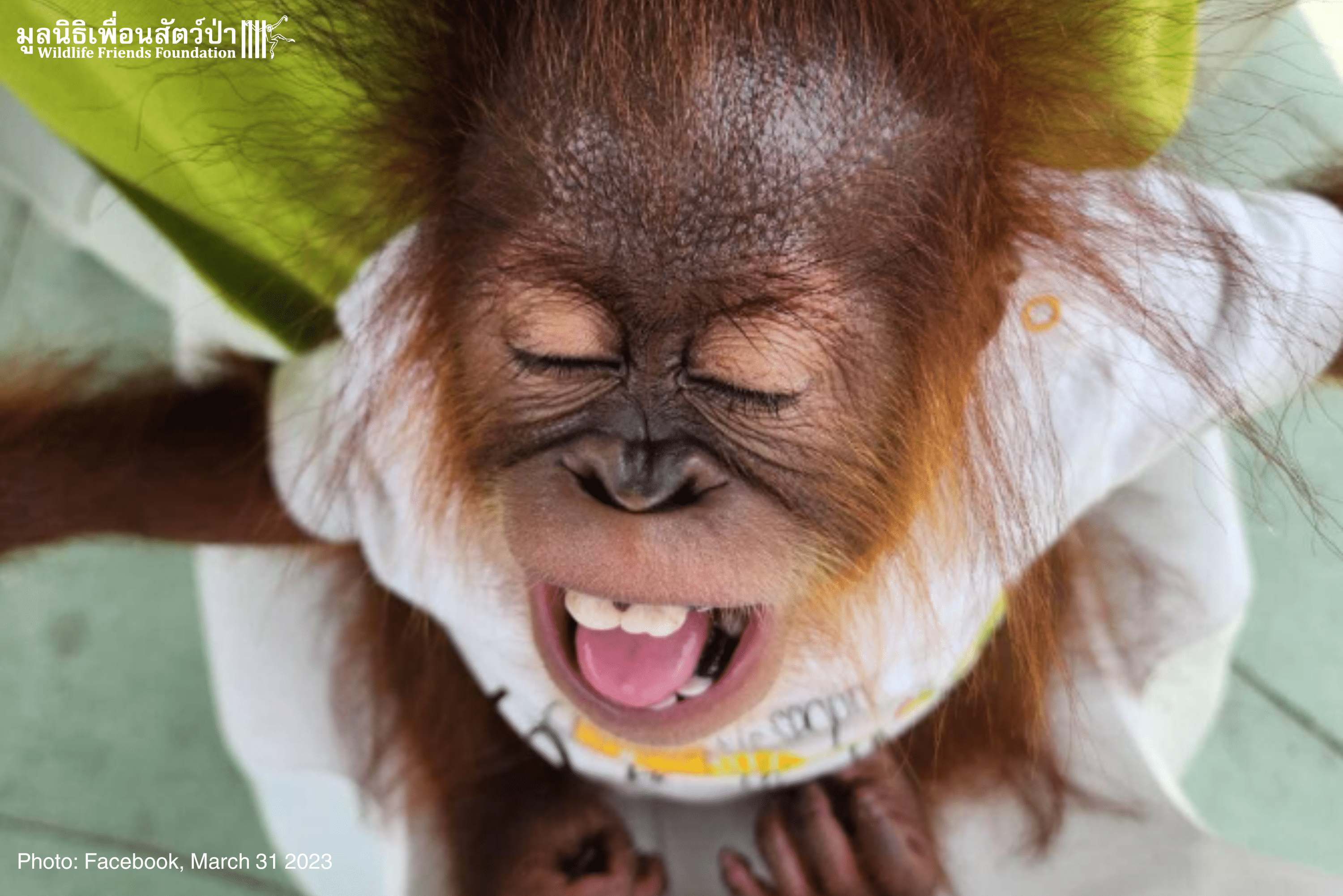Large Pangolin Rescue on Thai-Lao border
PRESS RELEASE
Large confiscation of pangolins arrive at WFFT / Lao Wildlife Rescue Centre
Yesterday Laos PDR enforcement officials confiscated 81 pangolins at a checkpoint on the border between Thailand and Laos. As the Laos Wildlife Rescue is the only multi-species wildlife rescue center in Laos PDR the officials contacted our team for help in the care and rehabilitation of these critically endangered animals. Upon arrival many of the pangolins were found to be very weak after being smuggled for days maybe even weeks in small sacks, sadly one already dead on arrival. It is often hard to instantly assess the health of such a large shipment of animals, particularly pangolins. Both our LWRC vet team and WFFT vet team are currently working around the clock to provide the best care possible for these unfortunate victims of the illegal wildlife trade.
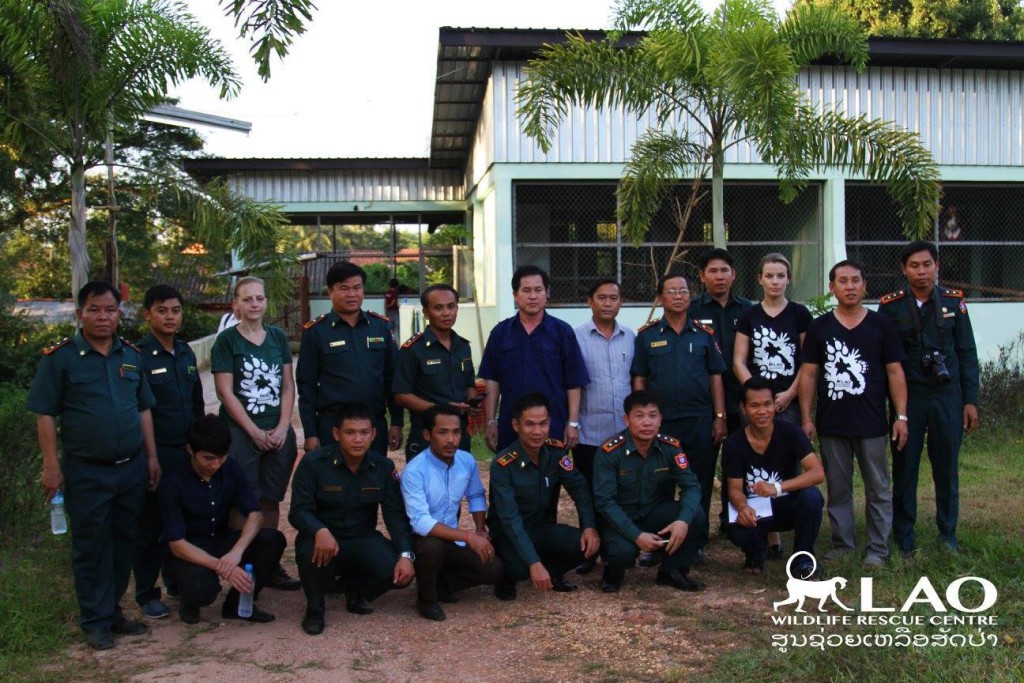
The Sunda pangolin (Manis javanica) is listed by the ICUN Red List as Critically Endangered (CR) and listed in CITES Appendix II, due to high levels of hunting and poaching for its meat and scales, the population of this species is declining throughout its range. The species is widely distributed geographically, occurring across mainland and island Southeast East Asia. In Lao PDR the Sunda pangolin is listed in the ‘Prohibition’ category of its Wildlife and Aquatic Law 2007, as a rare, near extinct, high value or species of special importance in the development of socio-economic, environmental, educational and scientific research.
It is likely that the confiscated animals have been poached in the Southern Southeast Asian Islands (Sumatra, Indonesia being the propable origin), then smuggled by boat over the sea to Malaysia and then onwards though Thailand and into Laos PDR. Both Lao PDR and Thailand play key roles as transit countries for the illegal trade in live wild animals from Southeast Asia to East Asia for international trade to China and Vietnam. Researchers at the IUCN state that over 1 million pangolins have been caught over the last decade, which makes them the most illegally traded endangered mammal in the world. The increased demand for pangolins and their body parts has seen prices surge from 13 US$ per Kg of scales in 1990s to more than 500 USD today. The illegal trade in pangolins is estimated to be worth about US$19bn a year.
Pangolins are the only mammal in the world that are completely covered (except their bellies) in scales. They are solitary, nocturnal and very secretive so many mysteries remain about their biology and behaviour. Pangolins live predominantly on a diet of ants and termites, which they may supplement with various other invertebrates including bee larvae, flies, worms, earthworms, and crickets. This specialist diet makes them extremely difficult to maintain in captivity. We are seeking assistance from experts in the field on the care of these enigmatic creatures.
The culprits of this illicit crime are currently in custody, we are hopeful that justice will prevail, with heavy fines and jailterms. For now these animals are being monitored around the clock, we are hopeful that many will be returned back to the wild in the coming weeks.
Will this species be killed and eaten to extinction in our lifetime? We sure hope not. We will keep you updated on the progress of these endearing creatures.

